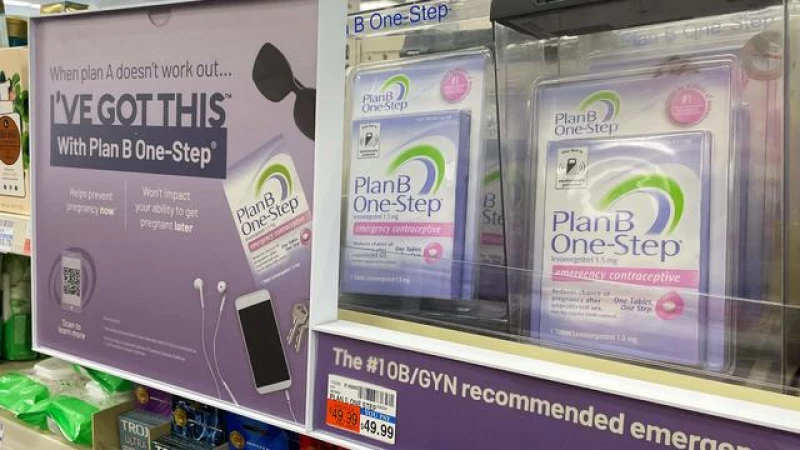The CDC's National Survey of Family Growth has released two reports examining trends in sex and birth control among teens and women ages 15 to 44 years old. The reports reveal that among teens and adult women who have had sex, 26.6% have used emergency contraception pills, compared to 10.8% in a previous survey from 2006 to 2010. Additionally, 22.3% of female teens who have had sex reported using emergency contraception, up from 13.7% in 2010.
Although emergency contraception pills have been approved by the FDA since 1998, it wasn't until 2006 that they were available over-the-counter without a doctor's prescription.
According to the Centers for Disease Control and Prevention (CDC), there is another type of emergency contraception available that involves the insertion of an intrauterine device (IUD) by a medical provider within five days after sexual intercourse. Although this option is less convenient than over-the-counter pills, it is considered "highly effective." For more information, visit the CDC website.
Emergency contraception is not as widely used as other forms of birth control.
- FDA approves first over-the-counter birth control pill
Fewer teenagers report engaging in sexual activity
According to the CDC's survey, 38.7% of male teenagers say they have ever had sex, which is a decrease from previous years. In 2010, 41.8% of male teenagers reported having had sex. The lowest rate was among White teenage males, with only 33.1% reporting sexual activity.
Among male teenagers under 18 years old, 23.2% have had sex, and this number increases to 60.2% by the age of 19. For those who have not engaged in sexual activity, the most common reason chosen by 35.3% of all male teenagers is that they have not found the right person yet. This is followed by 26.2% who cite their religion or morals as the reason for abstaining from sex.
In comparison, the percentage of female teenagers who report having had sex has slightly decreased. In the latest survey conducted through 2019, 40.5% of female teenagers reported having had sex, compared to 42.6% in 2010.
According to recent findings, approximately 88.0% of women aged 15 to 44 years old have reported having sexual intercourse, which aligns with the CDC's previous research.
Among male teenagers who have engaged in sexual activity, there has been an increase in the number of individuals who used contraception during their first sexual experience.
Condoms are still the most popular method of contraception for male teens during their initial sexual encounter. The percentage of male teens using condoms has risen from 79.6% in 2010 to 84.5% in 2019.
The use of IUDs has tripled since 2010
For women aged 15 to 44 years old, the CDC's survey discovered that 21.4% of women have relied on IUDs for birth control.
This figure is nearly three times higher than the 7.7% reported in the 2010 survey, indicating a significant increase in the use of this long-acting birth control method. IUDs are inserted into the uterus by a medical professional and can last for several years.
A previous release of survey results focused on current birth control usage found that 10.4% of women reported using long-acting reversible contraceptives, which includes IUDs and implants that can be placed in the arm.
Among women who had previously used IUDs but stopped, the survey revealed that 32.8% cited dissatisfaction with the device as the reason for its removal, rather than other factors such as attempting to conceive.
Side Effects of IUDs
According to a recent study, 64.4% of women who stopped using IUDs cited side effects as their reason for discontinuing. While IUDs are known to be highly effective forms of reversible birth control, certain types that use copper can cause cramps and heavier periods. On the other hand, IUDs that use progestin, a hormone also found in birth control pills, may sometimes lead to abdominal pain.
The FDA warns that both types of IUDs carry some less common risks. These include a slightly higher risk of developing pelvic inflammatory disease, a sexually transmitted infection, in the first three weeks after insertion.
Sources:







